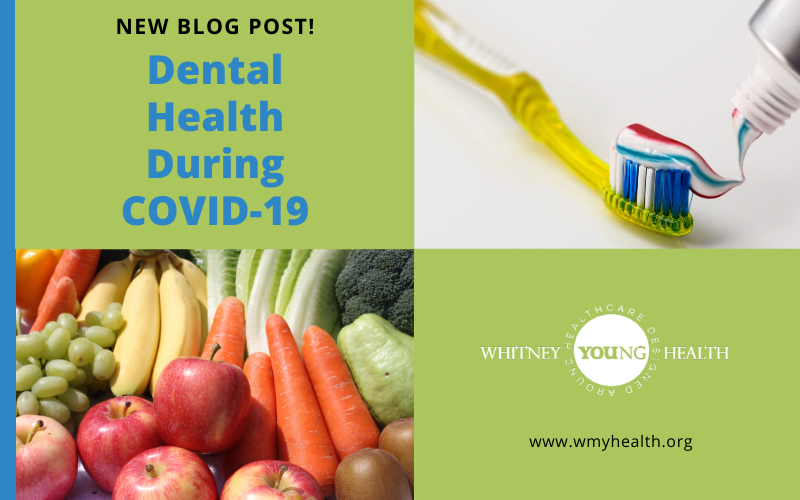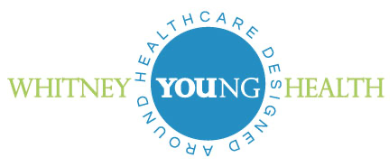
By Tracy Waldron
Practice Manager, Whitney Young Health Dental Department
Good dental hygiene might not be in the front of your mind in the middle of the COVID-19 pandemic, but that could change quickly if you lose a filling or develop a painful cavity and can’t get in to see a dentist.
Here are some tips for everyday dental care that can help you and your family keep teeth and gums healthy during the pandemic – and beyond.
ORAL CARE
- Brushing and Flossing: Dentists advise maintaining a daily routine of brushing teeth twice a day and flossing once daily to prevent tooth decay.
- Brush for 2 minutes: Dentists and hygienists advise brushing for 60 seconds on your upper teeth and 60 seconds on your lower teeth – make sure that you brush the fronts and the backs of your teeth and the left and right sides of your mouth on both the upper and lower teeth.
- Take care when flossing: Be careful not to pull out a filling! Pull the floss through the area between your teeth side-to-side instead of up-and-down through the area where your teeth touch.
- Rinse twice a day: Rinsing with a non-alcohol-based mouthwash twice daily can also help reduce plaque buildup leading to inflammation of the gums, also known as gingivitis. Please note that during the pandemic, it’s not advised to use any mouthwash or toothpaste that is meant to kill oral bacteria, because it can get rid of good bacteria as well as the bad!
- Toothbrush hygiene: Keep your brush clean!
- Make sure to rinse your toothbrush well after brushing.
- Replace your toothbrush every 3 months.
- If you are sick, throw away your old toothbrush and replace it with a new one once you are feeling well – even it hasn’t been 3 months.
DIET MATTERS
- Avoid excessive snacking: Raiding the fridge or opening that bag of chips is a habit that’s all too easy to adopt when dealing with the stress and boredom inherent in self-quarantining or working from home.
- Stay away from starch: Starchy foods, also known as carbs, lead to acid in our mouths, which dissolves tooth surfaces. Examples of starchy foods include pasta, rice, bread and potatoes. Drinks such as instant ice tea/coffee mixes and beer also contain high levels of starches, and frequent use of alcohol can also dry out the cells in your cheeks and gums.
- Better snack choices: Fresh fruits and vegetables, nuts, and plain yogurt topped with fruit are examples of snacks that are better for your teeth.
- Stay hydrated: Dentists agree that good hydration, especially by drinking water, is important for oral health.
- Avoid sugary drinks: Drinking a lot sugar can be detrimental to oral health. Soda, juice, sweetened ice teas and energy drinks all contain high levels of sugar. Smoothies can also be very sugary.
- Don’t get in a sticky situation: Dentists also recommend avoiding hard and/or sticky foods that can crack a tooth or damage or pull out fillings. Examples include popcorn, peanut brittle, and sticky candy.
Remember, these tips don’t mean that you can’t enjoy a treat once in a while – they are guidelines to help you make better choices for the health of your teeth – and the rest of your body!
HARMFUL HABITS
- Smoking inhibits the blood supply to your gums and increases your risk for gum infections.
- Chewing on ice, pen caps, or fingernails as a means of stress management can cause the teeth to chip or break.
Following these guidelines can help you and your family keep your teeth healthy, not just during the COVID-19 pandemic, but at any time.
